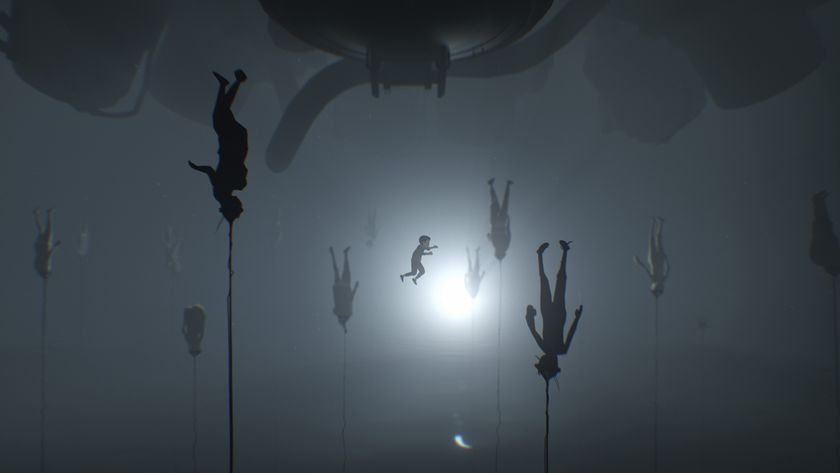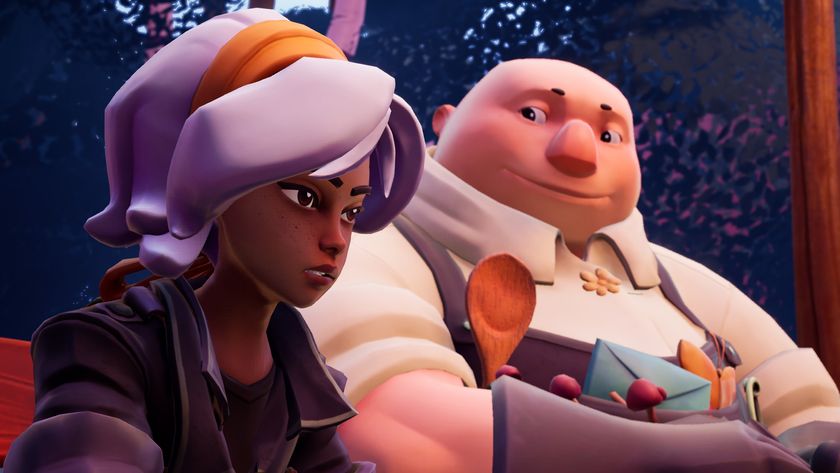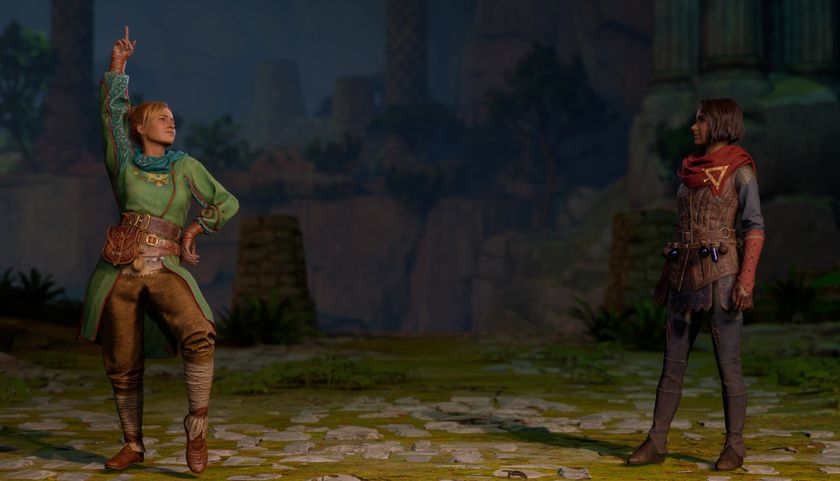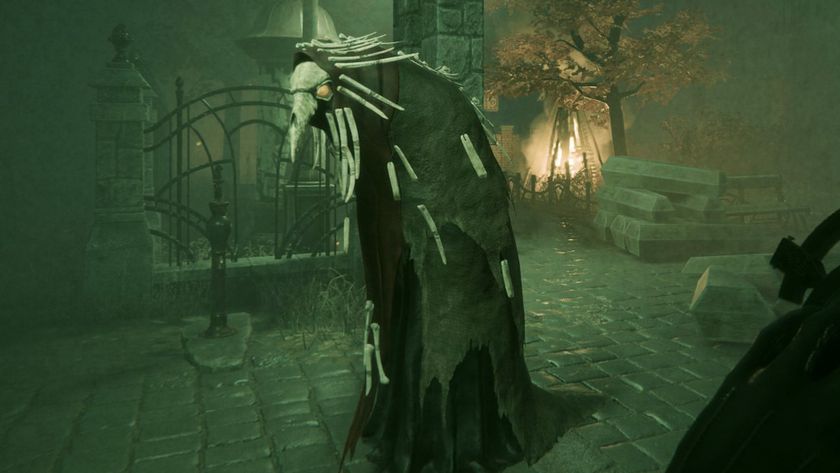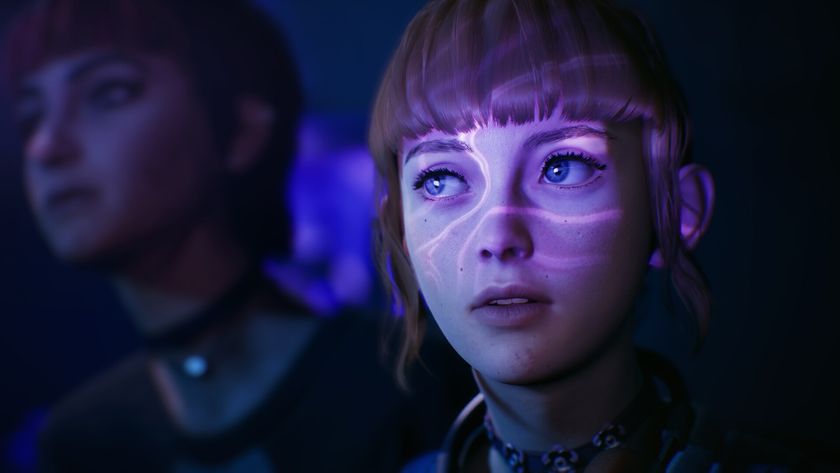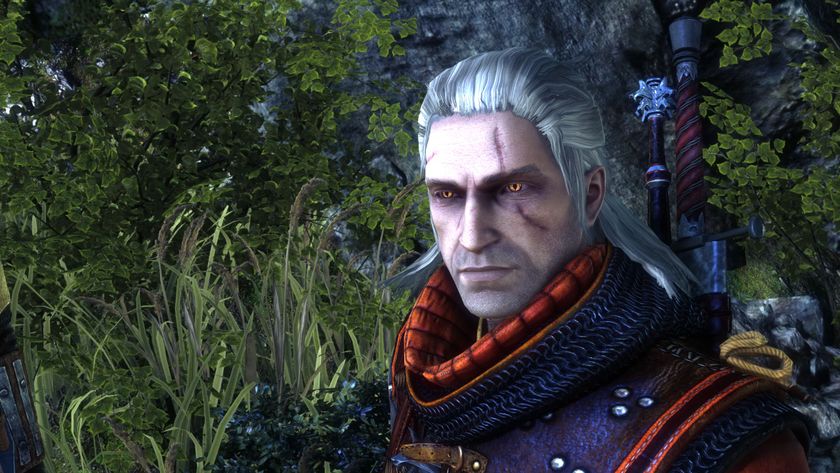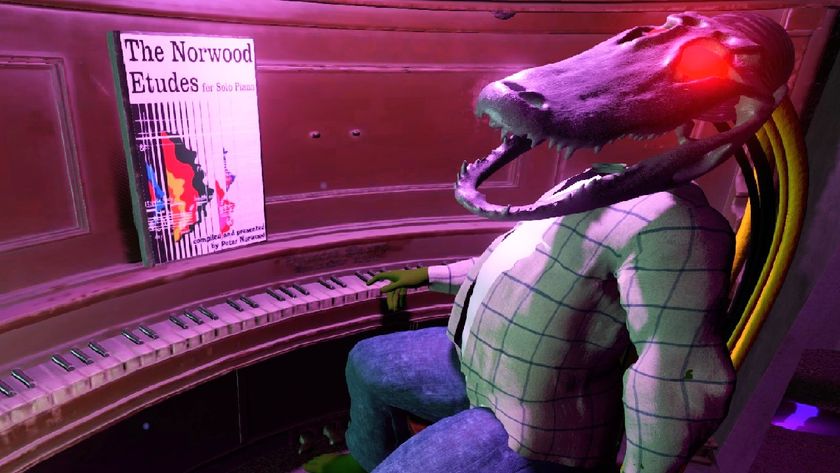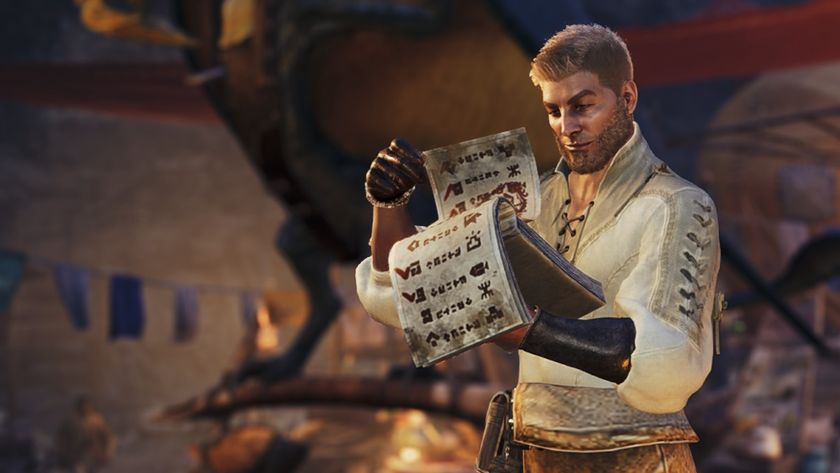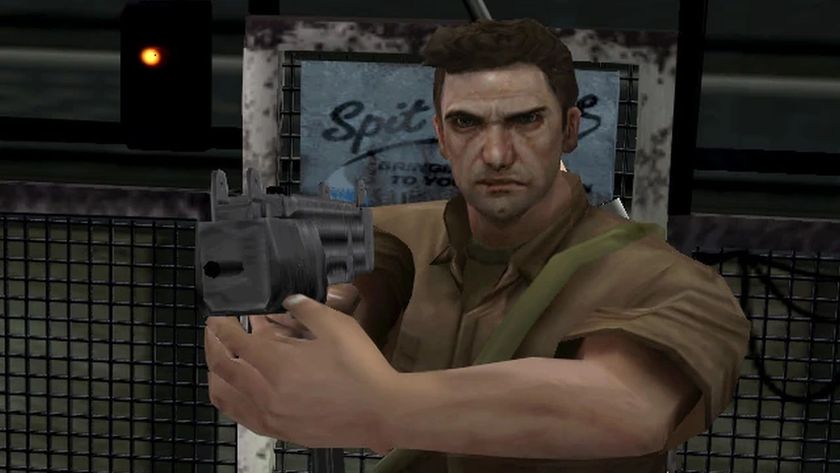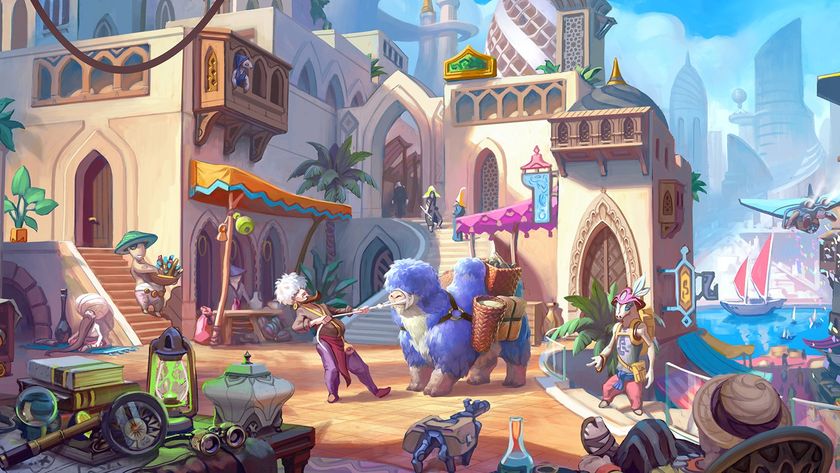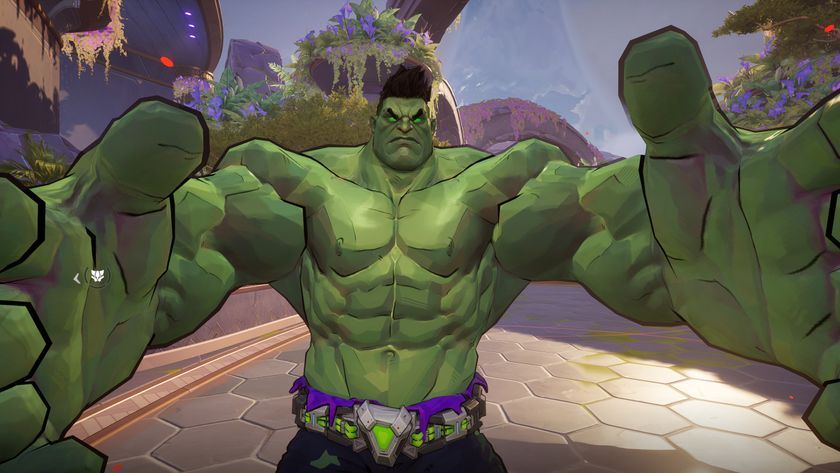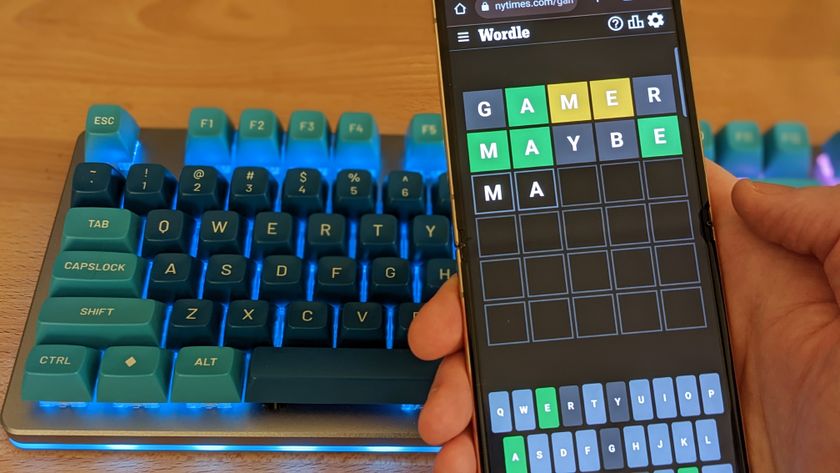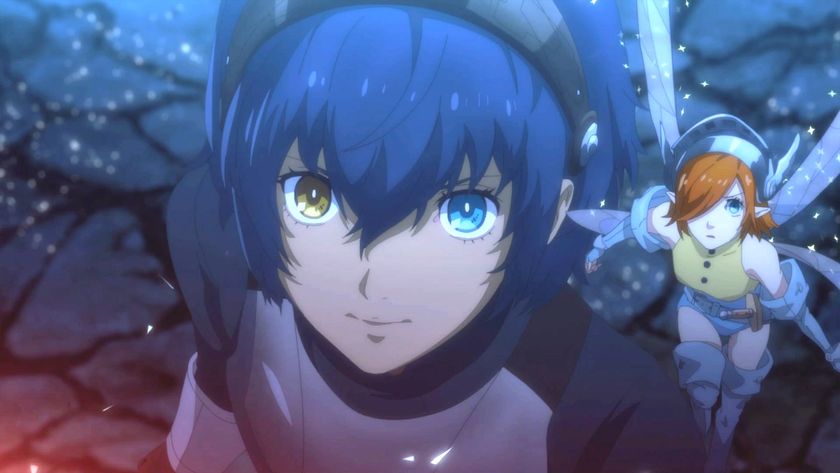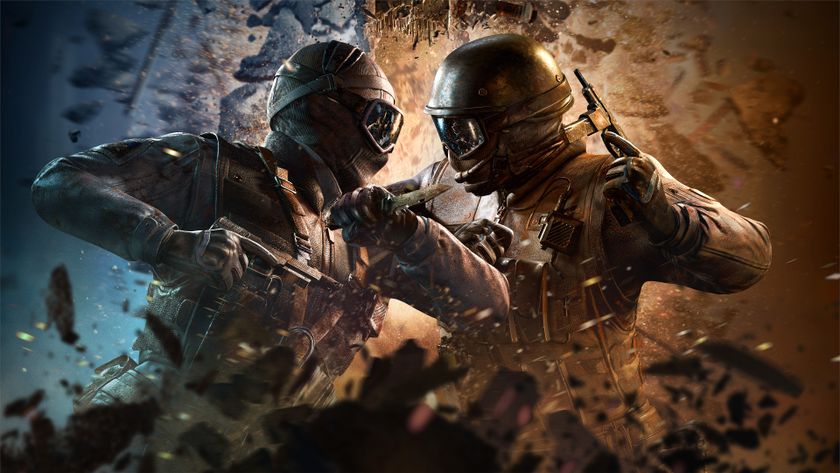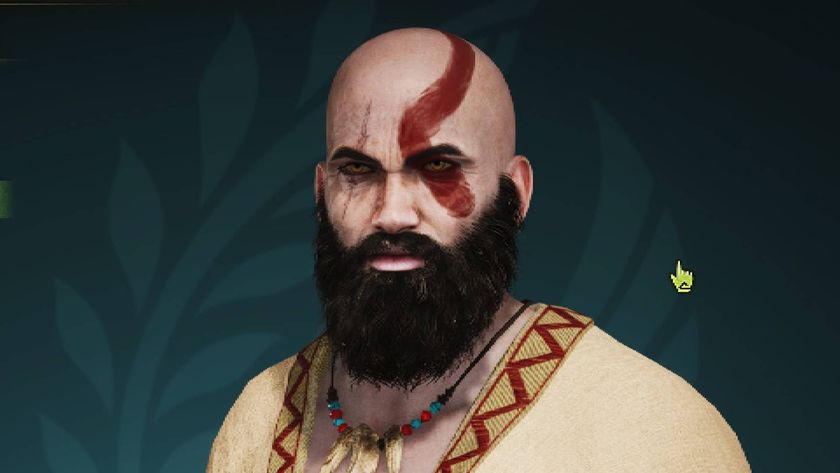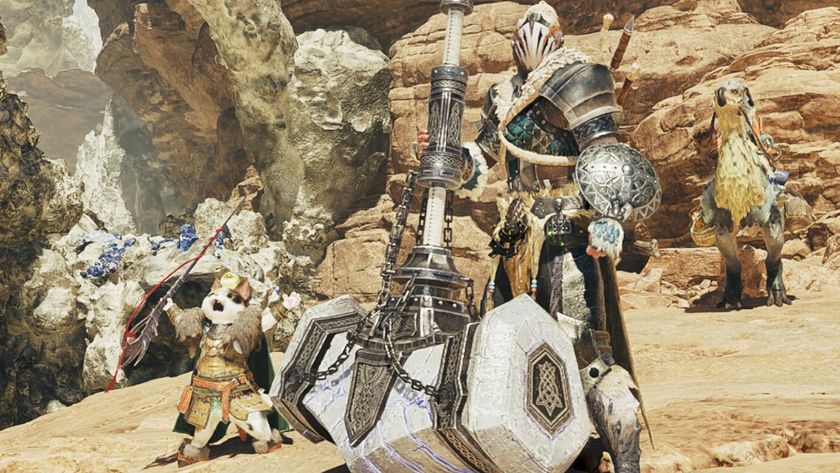The future of RPGs, according to Obsidian
"I want our games to feel just more real with even more choice for players."
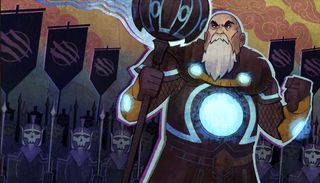
For our recent special edition magazine, PC Gamer: The Ultimate RPG Handbook, we asked game developers about the future of role-playing—how they'd like to see the genre evolve, and what advancements we can expect in the years to come. Here, as a supplement to that feature, you can read Obsidian CEO Feargus Urquhart's thoughts on the future of RPGs. PC Gamer: The Ultimate RPG Handbook is out now in UK newsagents, and through My Favourite Magazines.

Feargus Urquhart was the division director of Fallout, and the founder of Black Isle Studios. After the close of Black Isle, Urquhart co-founded Obsidian, where he works to this day as CEO.
Photo credit: Cassidy Rainer
PC Gamer: How exactly would you define “role-playing game”, right now?
Feargus Urquhart: For me, role-playing is what it has always been. It’s about choice. It’s about letting players do what they want to do, and having the game react to their particular way of playing the game. In the early days of CRPGs it was mostly about party choice. Players could choose to have certain classes in their party, but there were always more classes than party slots. So, players made choices, and then had to fight their way through the game with that party. In modern RPGs those choices have become much more about what type of role the player wants to play – are they good, evil, male, female, straight, gay, violent, charismatic, stealthy, etc… We talk a lot in the industry about AR and VR, but often look at the best RPGs as the best way to escape from reality, and immerse yourself in another world.
PCG: What do you think have been the most important role-playing games of the past few years? Which games have inspired you?
FU: It’s probably been more than a few years, but I was always impressed with the Mass Effects. You have to play a more specific role, but they really fulfill the feeling of being James T. Kirk in many ways. More recently, the Witcher 3 did an incredible job of creating a very living world, and it’s cool to play an RPG with a bit more of an action slant. When it comes to Fallout 4, no one does it better than Bethesda in creating a visually dense environment helping to really put you in the post nuclear world of Fallout. I’d also like to point out Spider, another RPG developer, who is still learning the craft, but has made some interesting games with Mars: War Logs and Technomancer. I’m interested to see where they go in the next few years.
PCG: Broadly speaking, what would you say are the topics, types of subject matter or story themes that you think RPGs will explore (or explore more) in the next few years? Are there any kinds of story you personally wish that RPGs would look into more - or less?
FU: Funnily enough, this is something we talk about a lot. We ask ourselves questions like, if Fallout came out now, would it resonate the same way as it did in 1997. Fallout was made by a bunch of Gen Xers – the cold war kids. Now-a-days, I think we should look at how invasive technology has gotten into our lives, where AI is going, what is it to be human or machine (Tears in Rain by Bruna Husky is a cool book about that), hacking biological viruses, could anything we want be printed in twenty years and what would that mean, and what is the natural progression of mega-corporations like Apple and Amazon and their ecosystems? I’m not trying to get all paranoid here, but it’s interesting to take a lot of these things to a logical end, particularly when I think those things are concerning to a lot people.
The biggest gaming news, reviews and hardware deals
Keep up to date with the most important stories and the best deals, as picked by the PC Gamer team.
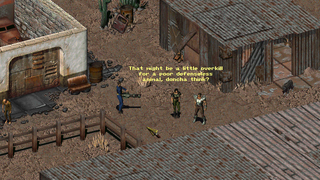
PCG: Where do you see the most room for growth in terms of game mechanics and systems? And again, is there anything you wish RPG developers would look into more?
FU: I want our games to feel just more real with even more choice for players. I don’t mean real from the standpoint of how they look, but that you just feel a part of the world. It’s not a world that starts and stops as the player enters and then exits an area. It’s a world that feels like it is always moving. A denseness of experience. I read an article about Blade Runner years ago, where one of the guys working on the set sat down in Deckard’s apartment, looked around, and then realized that it truly felt like someone lived there. That’s what I want us to hit not just with how an area looks and feels, but with the choices that players have as well.
PCG: Are there any technologies or platforms you think will strongly affect the evolution of role-playing games at this stage (e.g. VR or distributed processing)?
FU: I like to say that RPGs are probably the most adaptable of the game genres. We’ve been playing them since monitors only had one color, and I think we’ll be playing them into the generation of VR and AR. Ultimately, I always go back to how RPGs are about the experience of choice, which is not about the technology, but about what we let them do.
PCG: How do you think your own projects have contributed to the genre's evolution? If you could do anything differently, what would it be?
FU: I wouldn’t screw up the entire balance of Fallout 1 by inventing the Turbo Plasma Rifle. That was really dumb on my part. Now that’s me personally, and not the fault of anyone else at the time back in Black Isle Studios. What I think we have contributed is constantly pushing player agency, multi-faceted deep companions, and that RPGs can both be non-linear and have compelling stories. I think we can all do more there as well, but I am incredibly proud of what the teams at Black Isle Studios and Obsidian have been able to do when creating what is our own unique flavor of the RPG genre.
